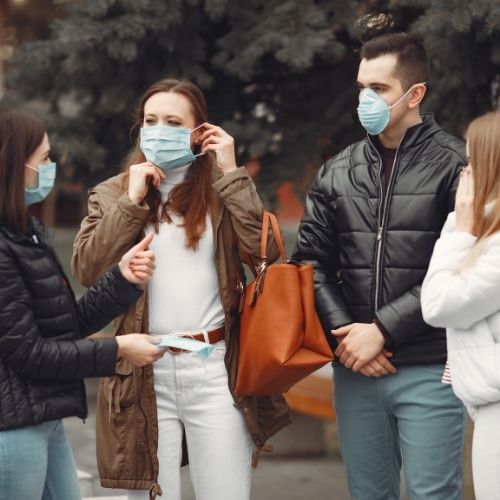Currently, the World Health Organisation recognises over 33 candidate COVID-19 vaccines in development, some of which are now being tested in Phase Three randomised controlled trials. Delivery of future COVID-19 vaccination programmes need to be supported by an appropriate communication strategy to ensure uptake is optimal.
People with underlying health conditions and aged over 70 years are more likely to develop serious health problems from COVID-19. Young people’s health is less affected, although their education and social lives have been severely curtailed.
As part of the Elizabeth Blackwell Institute Rapid Response to COVID-19 funded study, we carried out a qualitative study with 21 young people aged 12 to 17 years to understand how the pandemic has affected them . We also asked them whether, hypothetically, they would be willing to be vaccinated against COVID-19 if a vaccine became available.
The biggest impact of the pandemic identified by young people was not being able to spend time with friends or family members, and disruptions to their education because of school closures. Although some young people were enjoying activities in the home, and suggested there was a clear benefit from not having to get up as early in the morning!
All participants confirmed they would take the vaccination if it were available. Their biggest motivation was to protect groups at higher risk from COVID-19, such as older population groups or those with underlying health conditions. For example, one of the participants, a young woman aged 14 years, said ‘When you’re in a position when it [COVID-19] doesn’t affect you, it would be selfish not to think of other people who you might pass it on to who it would affect.’ Other young people thought it would be important to reduce the impact of COVID-19 among the whole population. One male participant aged 13 years described his motivation to be vaccinated as follows: ‘So we can just eradicate coronavirus. If everyone has it then we don’t have to worry about it anymore’.
These findings of high levels of altruism among young people differ from findings of our previous study about the human papillomavirus (HPV) vaccine where the focus was on the benefits of protecting themselves from developing cancer. Young people did not discuss protection to other people. It may be that greater attention should be given to young peoples’ potential for altruism in a range of public health initiatives.
It is understandable that a future vaccination programme might prioritise those who are most vulnerable to the harmful effects of COVID-19. But controlling outbreaks among young people is currently highly relevant to policy makers given the increasing number of cases increasing incidence of COVID-19 among younger age groups. If a successful vaccine is developed, policy-makers may consider delivering a schools-based COVID-19 vaccination programme to young people and our research suggests they would be keen to prevent transmission to those who are older or more vulnerable. This could bring additional benefits to healthy young people by reducing further disruptions to their education and social activities in the event of future outbreaks.
Future research studies could investigate the extent to which a COVID-19 schools-based vaccination programme is acceptable to young people, their families, health professionals and school staff, and a communication strategy for a future COVID-19 vaccine which aligns with the high levels of altruism we found amongst young people.
